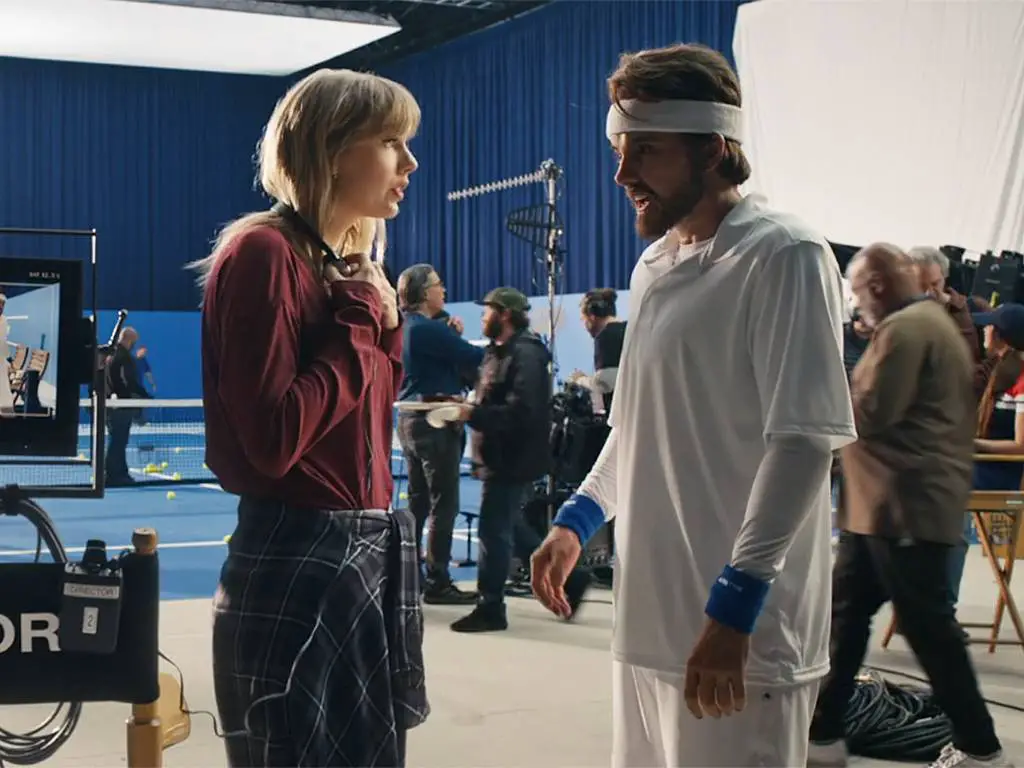In Taylor Swift’s latest music video for “The Man,” the singer explores what her life would be like if she were male. She goes all in on this performance, even dressing up as a man in the video to fully get in character. The Washington Post called it “a gender-bending takedown of the patriarchy.” The Daily Campus called it “a critical, complex new music video.” Fox News said the video “leaves fans stunned,” yet despite what Swift’s superfans have to say, it’s not breaking any glass ceilings.
The lyrics hold no subtlety: “I’m so sick of running / As fast as I can / Wondering if I’d get there quicker / If I was a man” sings Swift, who references gender disparities in many ways throughout the song. As the country-turned-pop singer expresses in “The Man,” she has been running as fast as she can throughout her career, only to find that her gender remains a barrier. Swift has been called a “serial dater” for having multiple romantic relationships with high-profile celebrities. But if she were a man, she sings, “They’d say I played the field before / I found someone to commit to / And that would be okay / For me to do.” She has also been prevented from owning and performing her own music and has been constantly scrutinized for her size and outfits, criticisms that women constantly face.
The music video for “The Man” begins with a shot of a nearly unrecognizable Swift as a man, called “Tyler Swift” in the video, gazing out a high-rise window in a power pose and suit. A drag king clarified to Slate that Swift is not in drag; that would have required having a full alternate persona and backstory, whereas in “The Man” she was merely acting a role. No drag king would have received as much media intrigue about their transformation as Swift did for hers, a disparity that she did not highlight. The intrigue around her transformation is in fact the only piece that’s fresh about this music video — other than that, its message is nothing new.
To call attention to gender inequality in the workplace, Swift plays up the physicality of her adopted male persona, who spends the entirety of the video throwing a tantrum. She also fires not-so-subtle shots at certain famous men, including record executive Scooter Braun (with whom she has much beef) and actors Jake Gyllenhaal and Leonardo DiCaprio. While on a surface level this is a video about toxic masculinity and gender issues in general, it is reduced to an Easter Egg-filled clapback for fans who pay attention to these hints. This takes away from the more important message of the song, that the unequal treatment of women is a serious issue affecting many people.
The “revolutionary” aspect of this video is that it’s new ground for Swift. The singer has historically been known for having almost “no politics,” so the overtly feminist message of “The Man” is a pivot for her — and the reason it is receiving so much attention. In fact, going back to her country music roots — a conservative-leaning genre whose artists are told not to discuss politics — she was hailed as “conservatives’ favorite pop star.” Swift notably broke her silence on politics in 2018 when she posted an endorsement of two Tennessee candidates on Instagram, encouraging fans to register to vote and to not vote for Senator Marsha Blackburn, who had opposed legislation that would protect the basic human rights of women and the LGBTQ+ community. The move appeared to spark a surge in voter registration, but Blackburn kept her seat on election day.
Swift’s post was about who she was voting for, but more importantly it revealed where she stood on the issues of gender equality (including abortion rights!) and LGBTQ+ rights. The fallout was severe; she gained progressive fans and lost conservative ones, with some claiming her career was over and that she knew nothing of politics. Yet while revealing where she stood on human rights issues was a big step for Swift, it was by no means revolutionary. Celebrities, and musicians in particular, have long been voices for social change, whether it’s the musical movement against the Vietnam War in the ’60s, jazz and rap as a window into the inequalities faced by African Americans, Queen creating a conversation around LGBTQ+ visibility or Beyoncé singing about her experiences as a female artist. To call Swift a catalyst for social change is wholly incorrect; rather, a push for gender and queer equality seems to have caused her to change.
The singer’s latest album, “Lover” (2019), includes multiple songs deemed revolutionary, yet they are nothing new. Featuring queer people in her music videos, as she did in “You Need To Calm Down,” isn’t going to change the world. In fact, it’s something that every artist should be doing — and many have been for years.
Maybe by praising Swift excessively for her turn toward political commentary, fans will encourage more artists to step into that role. Heightened awareness of the unfair disadvantages of being a female celebrity can only be a good thing. Yet while we praise more privileged pop artists for calling out gender inequality, let’s remember that it’s far easier for them to use their platform to take a stand, and that they absolutely should.

















